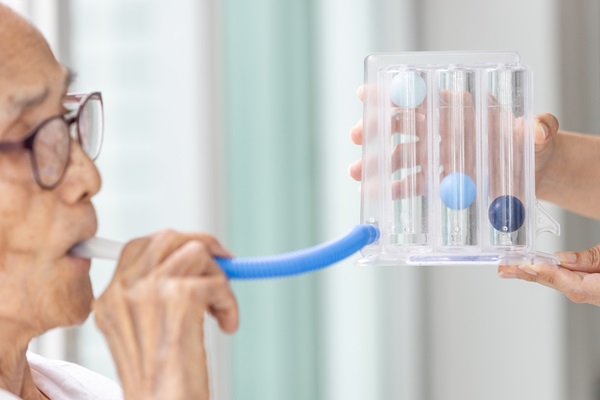Understanding Breathing Treatments: Options for Managing Respiratory Conditions

Professional breathing treatments, also known as respiratory therapy, are essential for managing various respiratory conditions. These treatments can help relieve symptoms, improve breathing, and prevent complications in individuals with chronic conditions like asthma and COPD, as well as acute respiratory infections. Understanding the different options available for breathing treatments ensures that patients receive the right medical care when needed.
Common respiratory conditions that require breathing treatments
Many respiratory conditions require targeted breathing treatments to help patients manage their symptoms and prevent further health complications. The following are some of the most common conditions treated in professional medical settings.
Asthma
An asthma attack is the result of inflammation and constriction of the airways, causing symptoms such as wheezing, shortness of breath, and coughing. Allergens, exercise, or respiratory infections can trigger asthma flare-ups. Breathing treatments are essential to manage these symptoms and prevent severe attacks.
Chronic obstructive pulmonary disease (COPD)
COPD, which includes chronic bronchitis and emphysema, is a progressive lung disease often associated with smoking. However, it can also result from genetics (Alpha-1 antitrypsin deficiency), air pollution, second-hand smoke, and other environmental factors. Common symptoms of COPD include:
- Coughing, sometimes with phlegm
- Shortness of breath
- Wheezing or whistling sounds when breathing
- Chest tightness or heaviness
- Feeling tired or lethargic
- Frequent lung infections
Breathing treatments can help reduce these symptoms and slow the progression of the disease.
Acute bronchitis
This respiratory infection causes inflammation of the bronchial tubes, leading to coughing, shortness of breath, and chest tightness. Breathing treatments can help alleviate these symptoms, particularly in patients with pre-existing lung conditions or severe cases. Immediate acute bronchitis treatment can prevent it from developing into more serious and possibly life-threatening conditions like pneumonia.
Pneumonia
Pneumonia is a severe lung infection that causes the air sacs in the lungs to fill with fluid or pus, making it difficult for the affected individual to breathe without pain or discomfort. A variety of organisms can cause pneumonia, such as bacteria, viruses, and fungi. While healthy adults can typically recover from pneumonia with the right treatment, pneumonia is particularly life-threatening in babies, smokers, elderly adults, and immunocompromised patients. Antibiotics can treat the underlying infection, but medical professionals may recommend breathing treatments to improve the patient's lung function and oxygenation.
When to seek breathing treatment
Whether one needs breathing treatment for an acute illness or chronic condition, it is essential to know when to seek one from a medical professional. Healthcare providers may recommend breathing treatments when patients present with the following symptoms:
- Shortness of breath that does not improve with rest
- Persistent coughing or wheezing
- Coughing up phlegm or pus, particularly if it has blood in it
- Abnormal breathing rate
- Breathing difficulties while sleeping
- Chest tightness or pain
Patients with chronic lung conditions should be particularly vigilant in recognizing when their symptoms worsen and seek care as soon as possible.
Types of breathing treatments
There are several types of breathing treatments available, each suited to different conditions and patient needs. Some treatments provide immediate relief, while others provide long-term management.
Metered-dose inhalers (MDIs)
MDIs are portable inhalers that deliver a pre-measured dose of medication — typically albuterol — with each puff. They are common for fast-acting relief (rescue inhalers) during an asthma attack and long-term control of respiratory conditions. MDIs are particularly useful for patients with asthma and COPD who need to manage their symptoms throughout the day. A spacer device with an MDI ensures the medication is delivered more effectively to the lungs.
Dry powder inhalers (DPIs)
DPIs deliver medication in the form of a dry powder that is inhaled deeply into the lungs. Unlike MDIs, DPIs do not require coordination between pressing the inhaler and inhaling, making them easier and more accessible to use. They are often prescribed for the long-term management of chronic respiratory conditions like asthma and COPD.
Nebulizers
Nebulizers are an effective way to administer medication directly to the lungs. They work by using an air compressor and turning liquid medication into a fine mist, which is inhaled through a mouthpiece or mask. Nebulizers help patients who need higher doses of medication or have difficulty using inhalers, such as young children or elderly individuals. These treatments are particularly effective for managing asthma attacks, COPD episodes, and acute bronchitis. Nebulizers can be plugged in or run on batteries, making them more portable for patients with busier lifestyles.
Oxygen therapy
Supplemental oxygen may be necessary for patients with severe respiratory conditions like COPD or pneumonia to maintain adequate oxygen levels. Oxygen therapy can be administered in a medical setting or prescribed for home use through a portable oxygen tank or concentrator. It improves oxygenation, reduces shortness of breath, and prevents organ damage associated with low oxygen levels.
Call our office to learn more
Breathing treatments can improve your lung function while reducing symptoms of a chronic or acute respiratory condition. With the right treatment, you can improve your overall quality of life. Call our New Caney office to learn more about our breathing treatment services or to schedule an appointment.
Request an appointment here: https://tx-urgentcare.com or call Texas Urgent Care & Imaging Center at (832) 941-1894 for an appointment in our New Caney office.
Check out what others are saying about our dental services on Google: Breathing Treatments in New Caney, TX.
Recent Posts
Contrary to what some may believe, diabetes requires professional treatment since it is a chronic condition marked by high blood sugar. With treatment, patients can manage their diabetes and reduce its impact on their lives. A primary care physician, or PCP, will guide patients through diabetes treatment, connecting them with specialists and using treatment strategies…
DOT drug testing is performed as part of the biannual DOT physical checkup for all commercial drivers. The Department of Transport is responsible for ensuring that all commercial drivers are sober. For the well-being of employees and the public, the DOT monitors drug and alcohol use with regular testing. Keep reading to find out what…
Drug screening is integral to many industries and institutions, such as workplaces, in-patient treatment programs, and sports organizations. These screenings look for signs of prescription, legal, or illegal drugs in a urine or hair sample. If you have an upcoming drug screening, you may have questions about the process. Here is what you should know.Drug…
Searching "urgent care near me" is likely the first step individuals take when they experience a sudden medical condition. However, some may not be aware of the difference between urgent and emergency situations or conditions. Learning the signs for each situation can help you determine where to go and likely increase the chances of treatment…


